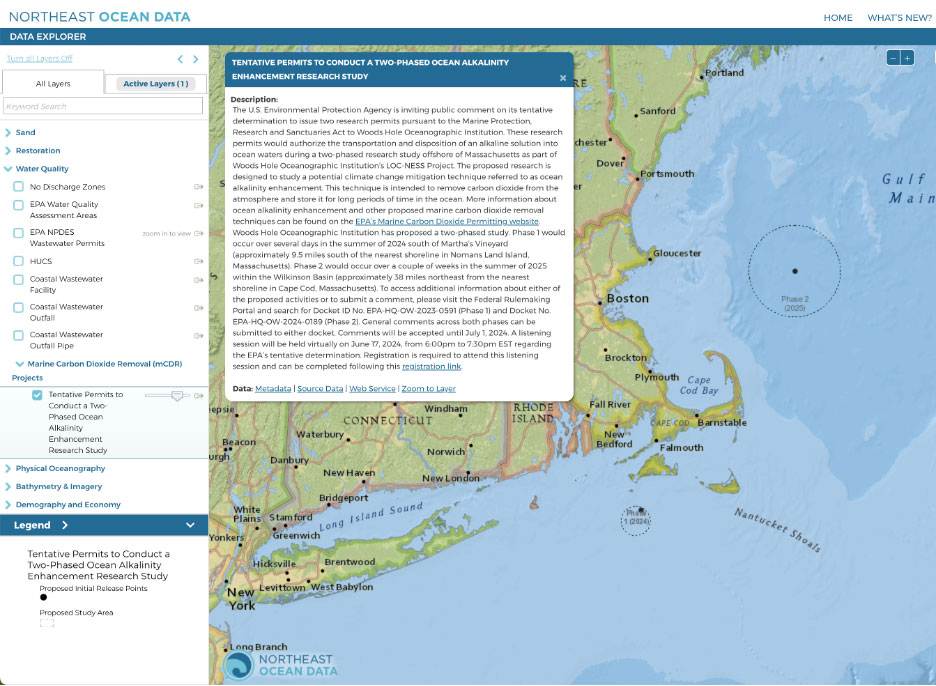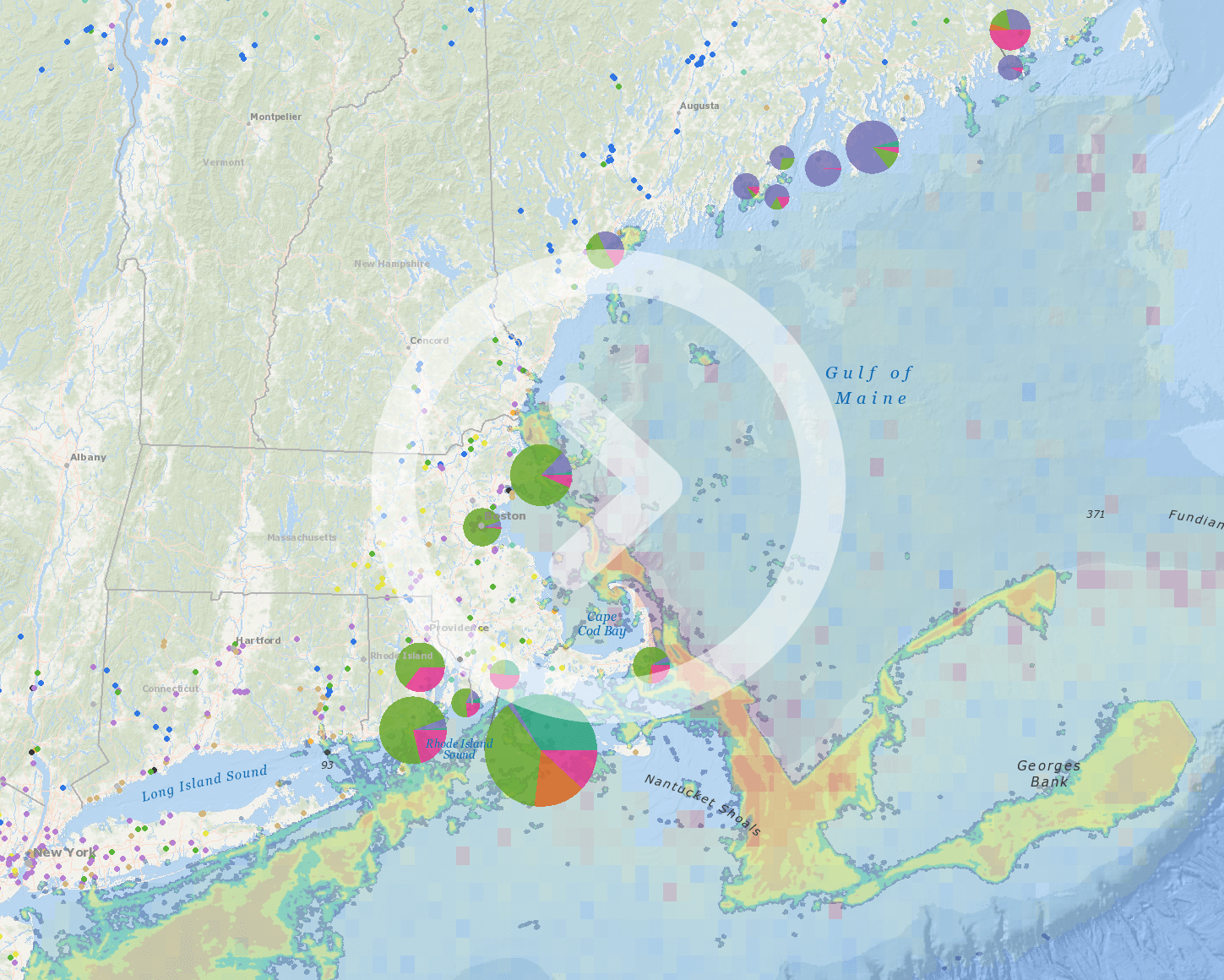Update 6/26/24: The EPA received a request to extend the comment period for the LOC-NESS Phase 1 and Phase 2 projects to allow additional time for the public to provide comment. The comment periods for both Phase 1 and Phase 2 have been extended for 10 days and will close on July 11, 2024.
The U.S. Environmental Protection Agency is inviting public comment by July 1, 2024, on its tentative determination to issue two research permits pursuant to the Marine Protection, Research and Sanctuaries Act to Woods Hole Oceanographic Institution.
These research permits would authorize the transportation and disposition of an alkaline solution into ocean waters during a two-phased research study offshore of Massachusetts as part of Woods Hole Oceanographic Institution’s LOC-NESS Project. The study areas for the two phases can be viewed in the Data Explorer under Water Quality > Marine Carbon Dioxide Removal (mCDR) Projects. Phase 1 would occur over several days in the summer of 2024 south of Martha’s Vineyard (approximately 9.5 miles south of the nearest shoreline in Nomans Land Island, Massachusetts). Phase 2 would occur over a couple of weeks in the summer of 2025 within the Wilkinson Basin (approximately 38 miles northeast from the nearest shoreline in Cape Cod, Massachusetts).
The proposed research is designed to study a potential climate change mitigation technique referred to as ocean alkalinity enhancement. This technique is intended to remove carbon dioxide from the atmosphere and store it for long periods of time in the ocean. More information about ocean alkalinity enhancement and other proposed marine carbon dioxide removal techniques can be found on the EPA’s Marine Carbon Dioxide Permitting website.
To access additional information about either of the proposed activities or to submit a comment, please visit the Federal Rulemaking Portal and search for Docket ID No. EPA-HQ-OW-2023-0591 (Phase 1) and Docket No. EPA-HQ-OW-2024-0189 (Phase 2). General comments across both phases can be submitted to either docket.
For more information, visit the Portal’s mCDR Research Permits page.


